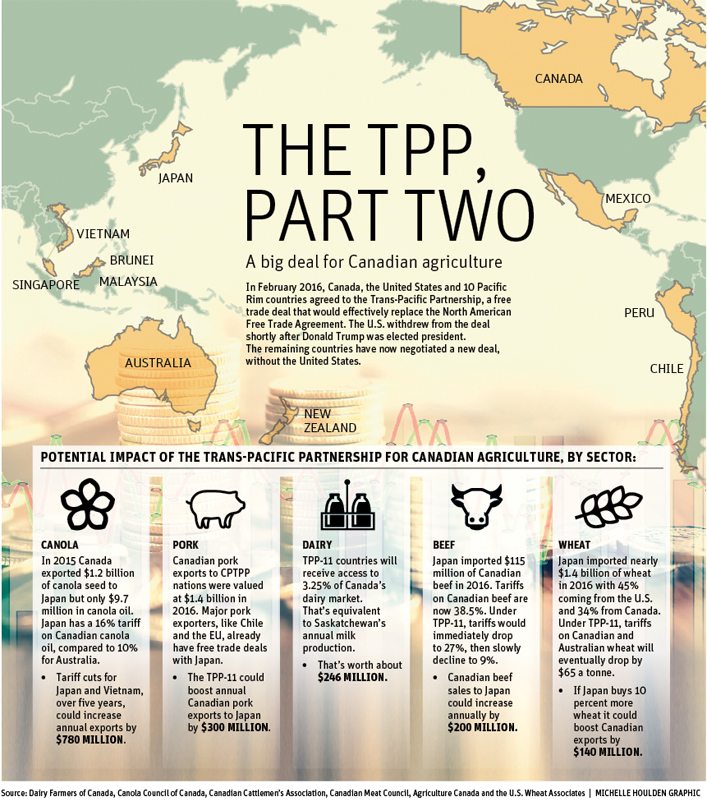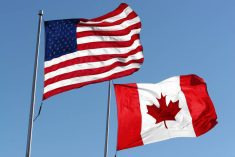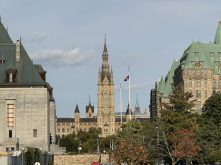OTTAWA — Canadian farmers should be doing a Snoopy-like dance of joy over the Comprehensive and Progressive Agreement for Trans-Pacific Partnership trade deal, says an agricultural trade expert who served Canada for three decades.
That’s because the deal opens up the Japanese market, a feat that would have been nearly impossible in a Canada-Japan free trade deal.
“Perversely, most of the heavy lifting of getting access into Japan was courtesy of the United States,” said Mike Gifford, who was Canada’s chief agricultural negotiator for the Canada-U.S. free trade deal and the North American Free Trade Agreement.
Read Also

Farming Smarter receives financial boost from Alberta government for potato research
Farming Smarter near Lethbridge got a boost to its research equipment, thanks to the Alberta government’s increase in funding for research associations.
“Canada in a bilateral (trade deal) to try and open up the Japanese market, you’re going to get very limited opportunities.”
The federal government announced Jan. 23 that Canada had agreed to a revised version of the TPP. The deal is formally known as the Comprehensive Progressive Trans Pacific Partnership, a free trade pact with Japan and nine other Pacific nations.
Related Stories:
- Supply management accused of refusing to make changes
- U.S. could be big loser if NAFTA dies
- WP Editorial: Dairy concerns legitimate but TPP still a no-brainer
- Capital Letters: Slow progress at NAFTA talks prolongs the uncertainty
- Opinion: Dairy progress off table if NAFTA fails
The United States was part of the original TPP, negotiated in 2015, but President Donald Trump pulled America out of the agreement last January.
Led by Japan, the remaining nations pushed ahead on a pact that covers 11 Pacific nations.
Most of Canada’s agricultural industry supports TPP because agri-food exports to Japan have been around $3.8 annually in recent years.
At worst, the TPP-11 deal should maintain those exports, but it’s possible sales could jump significantly.
As an example, Canada exported $115 million worth of beef to Japan in 2016.
The Canadian Cattlemen’s Association believes the deal will increase Canada’s beef exports to Japan by $200 million a year in the short term because of cuts to Japanese tariffs. Right now Japan has a 38.5 percent tariff on Canadian beef, which can increase to 50 percent under certain circumstances. The tariff will drop to nine percent over time, thanks to TPP.
Achieving such tariff cuts would have been difficult if the U.S. wasn’t part of the original negotiations, said Gifford, who spoke at the Canadian Agri-Food Policy Conference in late January in Ottawa.
“The U.S has much more negotiating leverage than we do. Even if Australia, New Zealand and Canada negotiated against Japan, we just don’t have the same leverage,” he said.
“They (America) put a lot of their negotiating coin into agriculture, and we’re going to benefit from that.”
It’s weird that other nations will profit from America’s aggressive stance in the TPP talks, but that seems to be the outcome.
“They got us in and then they withdrew themselves as a competitor,” said Al Mussell, research lead with Agri-Food Economic Systems, an economic research group in Guelph, Ont.
“We’re going to get pork and beef into Japan, and it’s access that they (the U.S.) don’t get. How did we pull that off?”
American agricultural groups are worried that they will lose access to Japan because of TPP-11. The National Association of Wheat Growers said Japanese tariff cuts on Australian and Canadian wheat will put “U.S. wheat producers at a total price disadvantage of more than $200 million per year.”
Japanese tariffs on Canadian ag commodities will drop or be eliminated, but it won’t happen overnight.
For instance, Japan imposes a 16 percent tariff on Canadian canola oil. Once the deal is ratified, the tariff will be phased out in five years.
That’s the good news.
The not so good news is that the Japanese tariff on canola oil will remain higher than the 10 percent tariff on Australian canola oil.
Australia has a free trade deal with Japan, so tariffs on its agri-food products have already dropped.
Ideally, TPP-11 would have put Canada and Australian canola oil on a level playing field, but Canada will have to play catch up because the tariff reductions are on different schedules.
“There are some people who thought that it would be in their interest to re-open the whole agreement and re-negotiate market access,” said Brian Innes, vice-president of public affairs with the Canola Council of Canada. “However, we acknowledged early on — as did others who wanted the agreement — that re-opening the market access provisions would seriously harm the chances for the CPTPP to be concluded or implemented.”
Canada and the 10 other nations in the new TPP deal are scheduled to meet in Chile in March to formally sign the agreement.
Contact robert.arnason@producer.com



















